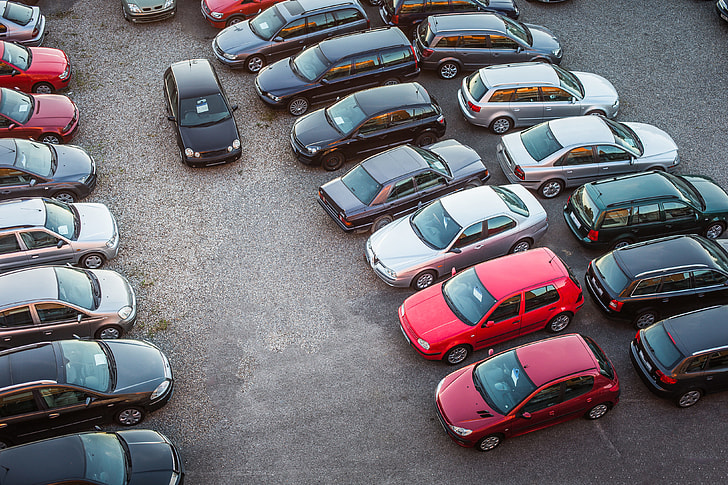Want to purchase a new car but tight on budget? Then, it’s time to ditch the traditional dealerships and attend car auctions. These events offer a unique chance to grab a great vehicle at a significantly discounted rate.
But before you navigate the process, it’s crucial to understand how a car auction works to secure a profitable deal. In this article, we will shed light upon it along with some other crucial details. So, let’s begin!
How Car Auctions Work: A Brief Overview
At traditional car auctions, the auctioneer manages the entire event. Their responsibilities include introducing each vehicle with some of their information, setting their initial price, and controlling the pace of bidding. Also, they must alert all the bidders when the bidding process begins.
Bidders are those individuals who want to purchase the auctioned cars. They must show their interest by either raising their hand or displaying a bidding card. The auction goes on with the auctioneer encouraging higher bids until the point that no more bids are obtained.
This is done to achieve the highest possible sales price of the vehicles. In case, the vehicle’s last bid amount does not match its reserve price, it can not be sold.
Types of Auto Auctions
Some common kinds of car auctions include:
- Closed and private dealer auctions: They are exclusive to licensed car dealers and not open to the public. Such auctions typically have newer and well-maintained vehicles, which are sold at wholesale prices.
- Salvage auctions: These auctions deal with those cars that have been damaged due to accidents or natural disasters. They typically interest rebuilders and part recyclers who want to refurbish the vehicle and sell it or dismantle it for parts.
- Public vehicle auctions: Public auctions are accessible to everyone and include a huge variety of automobiles with different conditions and histories. The vehicles in these auctions are usually obtained from trade-ins, repossessions, and private sellers.
- Government auto auctions: Cars from government fleets or those seized by law enforcement are sold here. These auctions are known for their competitive pricing and are open to the public.
- Online auctions: Besides on-site auctions, many renowned companies now also offer the opportunity to bid via telephone or online through a website. Here, the role of auctioneer is played by a particular software. While it makes the entire process convenient, there is a risk as well due to a lack of physical inspection.
A Comprehensive Guide to Attending Car Auctions
If you want to attend a car auction with the intention to bid over there, the below steps will serve as your guide:
- Research: Your first step should be to learn more about the cars expected to be auctioned and see whether they align with your interests. The key is to research basic details like the vehicle’s year, make, model, overall condition, and history. For additional insights, you can use a vehicle identification number (VIN) as well.
- Register: Now, the next step is to register yourself as a bidder for the auction. This step is crucial for both in-personal and online bids. In the course, you might get asked to provide a refundable deposit and your identity proof, like a driver’s license. Some auction houses may even charge a registration or entry fee.
- Be present before time: Arriving early at the site of the auction gives you the chance to inspect all the cars up close. In fact, you can even take them for a short test drive to learn more about their performance. However, this is only possible when the auction house gives permission for these things.
- Set up a budget: Bidding is an interesting process - thus, there are chances that you might end up spending more than intended. To avoid this, it’s recommended to set a maximum limit before you start. You can use automotive valuation tools like Edmunds to evaluate a fair price of the vehicle and set your highest bid based on this research.
- Place the bid: When the car you want to purchase comes to the auction floor, bid for it. Increase the amount as the situation demands, but make sure to stick to your budget. Also, ensure your bid is visible to the auctioneer or their assistants in the crowd.
- Close the deal: If you win a bid, you would have to settle the payment on the spot. This can be either through cash, checks, or digital transfers. Remember, additional fees like the buyer’s premium may also add up to the final cost. Simultaneously, you must also arrange for the transit of your new vehicle on the auction day.
Pro Tip: When bidding online, make sure to double-check the details of the cars that you are interested in. Sometimes, vehicles get removed from the list just before the auction starts, so it’s crucial to follow this step.
FAQs
Where do cars displayed at auctions come from?
Many vehicles found at auctions are trade-ins from those individuals who have upgraded to newer models. Meanwhile, a few are those that were taken by banks in case of non-fulfillment of the payments. Some of them are even from car collectors who want to downsize their extensive collections.
What’s the major reason behind the affordable prices of auctioned vehicles?
Usually, the reasonable rates at auctions are due to the auction houses’ intent to sell quickly so they can free up their inventory space. This is important to avoid depreciation costs. Furthermore, the vehicles are typically sold as-is, i.e., without any guarantees or warranties, which might be another factor behind their lowered rates.
Is a license necessary to buy a vehicle from an auction?
In general, participating in an auction does not require any dealer license. However, some of them are exclusively for licensed dealers, thus necessitating its requirement. This particularly involves dealer-only auctions or specific sections of public auctions that are designated for dealers.
Nexus Auto Transport - Your Reliable Partner For Shipping Vehicles From Auctions
Secured a bid at an auction and want to transport your newly purchased vehicle to your location? Well, you can trust Nexus Auto Transport with that. From door-to-door shipping to expedited transport and cross-country delivery, we offer it all at highly reasonable rates.
To get an accurate estimate of your expenses, you can use our car shipping calculator. There would be no hidden charges or additional fees included! Moreover, we have a network of highly trained drivers who ensure safe and timely transit of your car, irrespective of wherever you are in the US.
So why wait? Contact us now by giving us a call at 224-218-2949.


